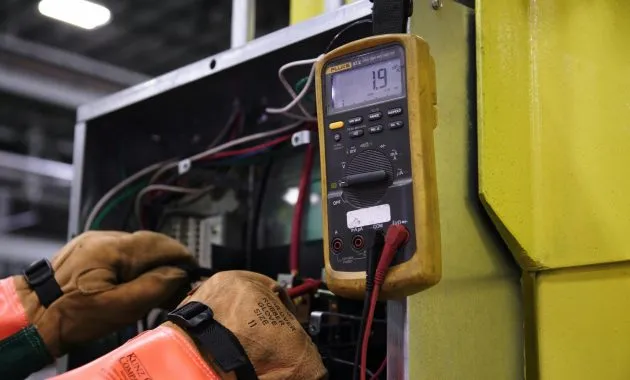Multymeter.com – Electrical Engineering: For those who want to know the advantages and disadvantages of 12 volt and 24 volt electrical systems, this article may be helpful as an enlightenment.
The 12 volt electrical system is easy to find, mostly used by simple electronic equipment, for example for children’s toy electricity, motorcycle electricity, engineering equipment that uses batteries and others. Likewise, 24 volt electricity has also been used in electronic equipment.
12 volt or 24 volt electricity has its own advantages and disadvantages, and the best choice depends on the application and power requirements. Here is a comparison:
12 Volt System
Advantages
- Wide Compatibility: The majority of electronic devices, automotive components (cars and small RVs), and small household appliances are designed to operate at 12V. This makes it very versatile and easy to integrate.
Portability and Compact Size: 12V batteries tend to be lighter and more compact, suitable for applications that require mobility or limited space.
2. More Affordable: Generally, 12V systems, including batteries, wiring, and related devices, are less expensive than 24V systems.
3 Simple Installation: 12V systems are usually easier to install because they require less wiring and do not require additional DC-DC converters for most vehicles or applications.
4. Ideal for Low Power: They are best suited for power requirements under 3000 watts, such as small lighting systems or personal electronics.
Disadvantages
- Less Power Transmission Efficiency: For the same power, 12V systems require a higher current (P=V×I, so if V is smaller, I must be larger for the same P). This higher current results in greater energy loss due to cable resistance (heat), especially over longer distances.
- Requires Thicker Cables: Because the current is higher, the cables used must be thicker to prevent overheating and voltage drop. This can increase wiring costs and take up more space.
- Less Ideal for High Loads: Inefficient for applications with very high power requirements or very long distances due to significant resistive losses.
24 Volt Systems
Advantages
1.Increased Efficiency: With higher voltage, 24V systems require less current to produce the same power. This reduces energy loss due to cable resistance, making them more efficient, especially for larger installations or longer distances.
2.Thinner Cables: Because of the lower current, the cables required can be thinner, saving on wiring costs and space, which is especially important for installations with lots of wiring.
3. Increased Power Output: 24V systems can deliver more power to devices than 12V systems, improving performance in certain applications.
4. Reduced Number of Solar Controllers (for solar systems): 24V systems can reduce the number of solar charge controllers needed, saving costs and simplifying setup.
5. Ideal for High Power: Recommended for systems with power requirements exceeding 3000 watts, often found on trucks, buses, heavy equipment, large solar power systems, or industrial applications.
Disadvantages
- Installation and Maintenance Complexity: Installing a 24V system is often more complicated because it may involve two 12V batteries connected in series or a less common dedicated 24V battery. It requires careful planning and specialized knowledge.
2. Less Compatible: Not all devices are designed for 24V. May require a DC-DC converter to run 12V devices, adding cost and complexity.
3. Higher Initial Cost: 24V system components, such as 24V batteries or dedicated devices, tend to be more expensive than 12V components.
4. Component Availability: Specialty 24V batteries may be harder to find than common 12V batteries.
Conclusion
Choose 12V if you have relatively low power needs (under 3000 watts), want easy installation, and wide compatibility with common devices. It is ideal for passenger cars, small RVs, and simple DIY projects.
Choose 24V if you need more power (over 3000 watts), want higher efficiency on remote installations, or have applications such as large trucks, buses, large-scale solar systems, or industrial equipment. While more complex, the gains in efficiency and power capacity are significant. It is important to always make sure that the system voltage is appropriate for the device you are using. Using a 12V device on a 24V system without the proper converter can cause serious damage.***

